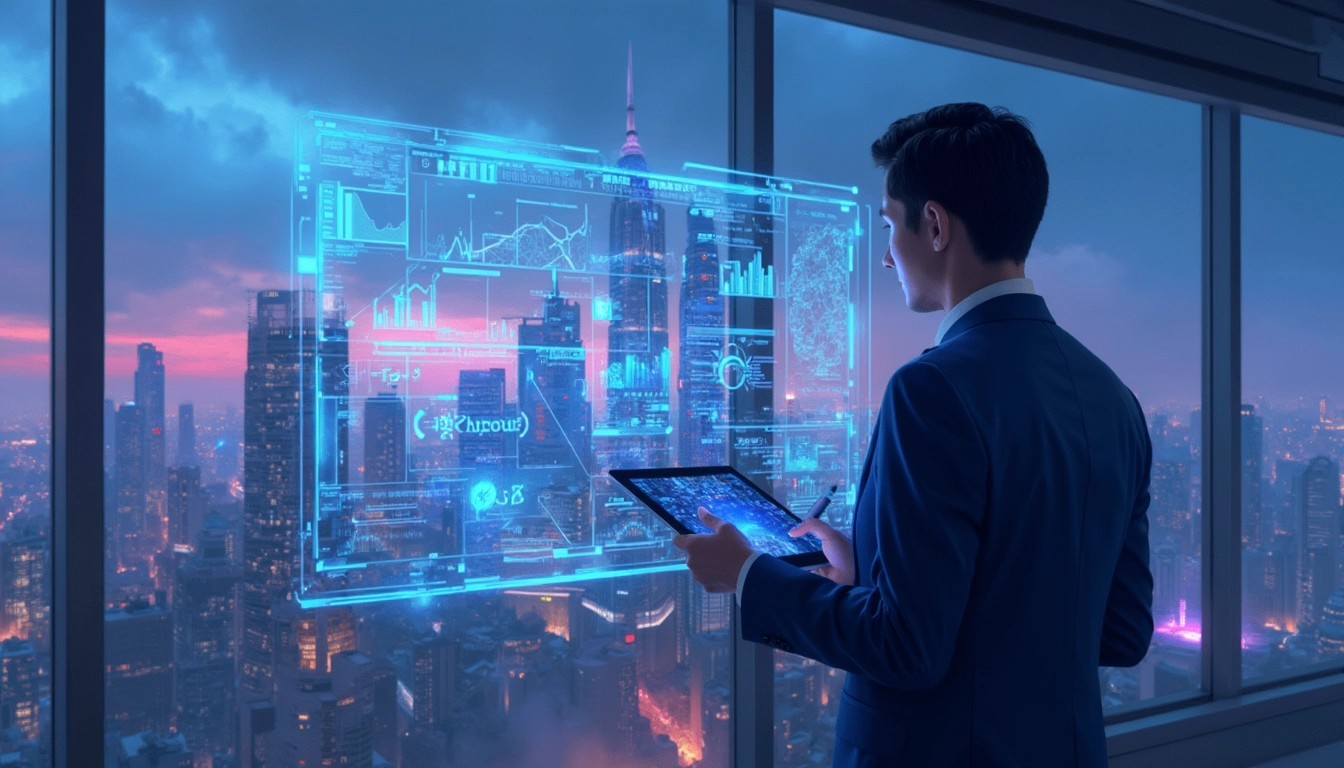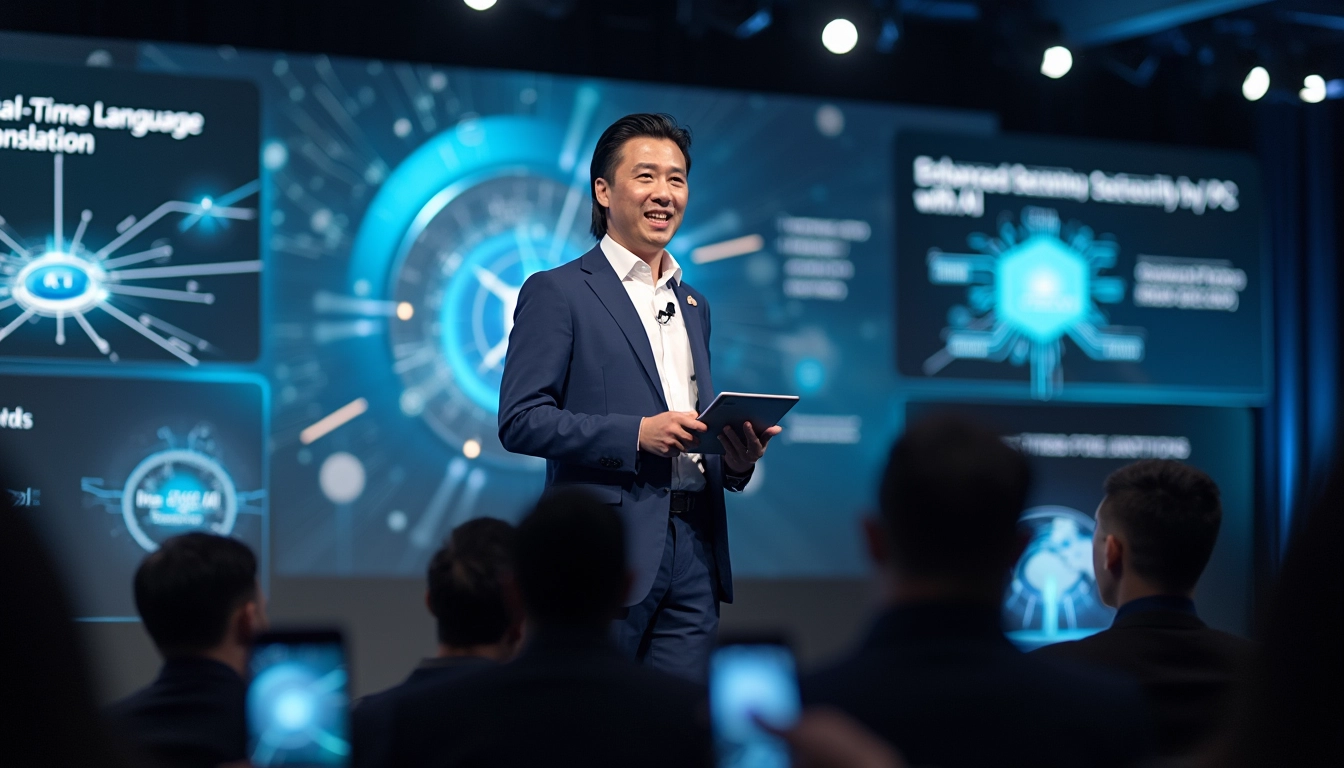
AI Revolution in PC Industry: The Next Big Upgrade Cycle Begins Soon
The PC industry is on the cusp of a significant transformation, with artificial intelligence (AI) poised to drive the next major upgrade cycle. This shift is expected to reshape the landscape of personal computing, offering enhanced productivity, security, and user experiences. However, predicting the exact timing and extent of this AI-driven revolution has proven challenging for industry experts.
Key takeaways:
- AI PCs are projected to represent 60% of global PC shipments by 2027
- Major tech companies are introducing AI-enhanced PCs and processors
- The upgrade cycle is expected to begin in the second half of 2024
- Enterprise adoption is likely to be stronger than consumer adoption
- Economic factors and lack of standards pose challenges to widespread AI PC adoption
Table of Contents
The Current PC Market and AI’s Potential Impact
The PC market has experienced a significant downturn, with eight consecutive quarters of declining shipments. This prolonged slump has been attributed to inventory digestion and a decrease in COVID-related demand. However, the integration of AI technologies is expected to breathe new life into the industry.
JP Morgan’s projections suggest that AI PCs could capture 40% of the market by 2026. Similarly, HP anticipates AI PCs to account for 40-60% of their total sales within three years of launch. These figures highlight the potential for AI to drive a substantial refresh cycle in the PC market.
Hardware Innovations Powering AI Integration
Leading chip manufacturers like Intel, AMD, and Qualcomm are at the forefront of AI integration in PCs. They’re incorporating advanced technologies such as neural processing units (NPUs) and specialized GPUs into their latest processors. These innovations are designed to enhance AI capabilities and improve overall performance.

Microsoft is partnering with OpenAI and Qualcomm to boost AI capabilities in Windows 11, while Apple has launched new MacBook Air models featuring the M3 processor, optimized for AI applications. These advancements are setting the stage for a new generation of AI-capable PCs that promise to revolutionize user experiences.
Enterprise vs. Consumer Adoption Trends
The adoption of AI PCs is expected to be stronger in the enterprise sector compared to the consumer market. This is primarily due to businesses’ ongoing digital transformation efforts and heightened security concerns. Companies are increasingly focusing on enabling remote work and leveraging local AI processing for enhanced security measures.
Dell, a major player in the PC industry, anticipates that AI will lead to shorter notebook replacement cycles, potentially driving a three-year refresh cycle in the enterprise market. This trend could significantly boost demand for AI-capable PCs in the corporate sector.
On the consumer side, adoption may be slower due to economic factors and market saturation. However, as AI capabilities become more widespread and accessible, we may see increased interest from individual users seeking to leverage these advanced features in their personal computing devices.
Challenges in AI PC Adoption
Despite the promising outlook, several challenges could impact the widespread adoption of AI PCs:
- Economic factors: Inflation and constrained budgets may limit adoption, especially among consumers.
- Lack of standards: The absence of unified standards for AI software and hardware could create compatibility issues.
- Training requirements: Customers and sales teams will need education on the new AI capabilities to fully utilize and market these devices.
- Market skepticism: There’s uncertainty about whether the AI hype will translate into actual demand and sales growth.
Overcoming these hurdles will be crucial for the success of AI PCs in the market. Manufacturers and software developers will need to work together to create compelling use cases and demonstrate tangible benefits to users.
Future Outlook and Market Projections
Despite the challenges, the future looks promising for AI-driven PCs. IDC projects that AI PC shipments will grow from 50 million units in 2024 to a staggering 167 million units by 2027. This rapid growth underscores the potential for AI to revolutionize personal computing experiences and boost productivity.
However, uncertainty remains about the exact timing and extent of the AI-driven upgrade cycle. The success of this transition will depend on overcoming economic challenges and effectively demonstrating the tangible benefits of AI-enhanced PCs to users.
As the PC industry evolves, it’s clear that AI will play a crucial role in shaping its future. For those looking to stay ahead of the curve and explore the potential of AI in various aspects of technology and business, I recommend checking out Make.com. This powerful automation platform can help you harness the power of AI for tasks ranging from content creation to business process optimization, allowing you to stay competitive in this rapidly changing technological landscape.
Sources:
.technewsworld.com, “Will AI-Enabled Processors Spark a PC Supercycle This Year”
.alphasense.com, “Expert Insights: The Rise of the AI PC”
.theregister.com, “Dell AI PC Refresh”
.constellationr.com/blog-news, “PC Industry’s Big Dream: AI-Enabled PCs Spur Upgrade Cycle”
.constellationr.com/research, “PC Upgrade Cycle To Be Driven AI, But Calling Timing Has Been Difficult”



One thought on “AI Revolution in PC Industry: The Next Big Upgrade Cycle Begins Soon”